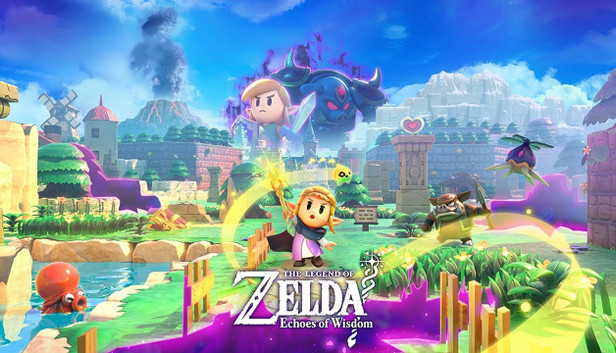
The Legend of Zelda: Echoes of Wisdom Review
- Hashem Habibian
- 2024-10-08
- 5:27 pm
Publisher: Nintendo
Developer: Grezzo
Release: Sep 26, 2024
Reviewed on: Nintendo Switch
In the 1980s, Zelda and Nintendo officially created the modern action-adventure genre with The Legend of Zelda: A Link to the Past. Most of the ideas we see in various titles of this genre today are indebted to the Zelda franchise and Nintendo.
And now, A year after the release of Zelda: Tears of the Kingdom, Nintendo has decided to release a spiritual successor to Link’s Awakening, Which visually resembles the 2019 remake of the classic title but has a completely different gameplay essence. Now we have to see whether the new title in The Zelda franchise, Echoes of Wisdom, has once again repeated its innovations or if it is just an ordinary entry in the franchise’s history.
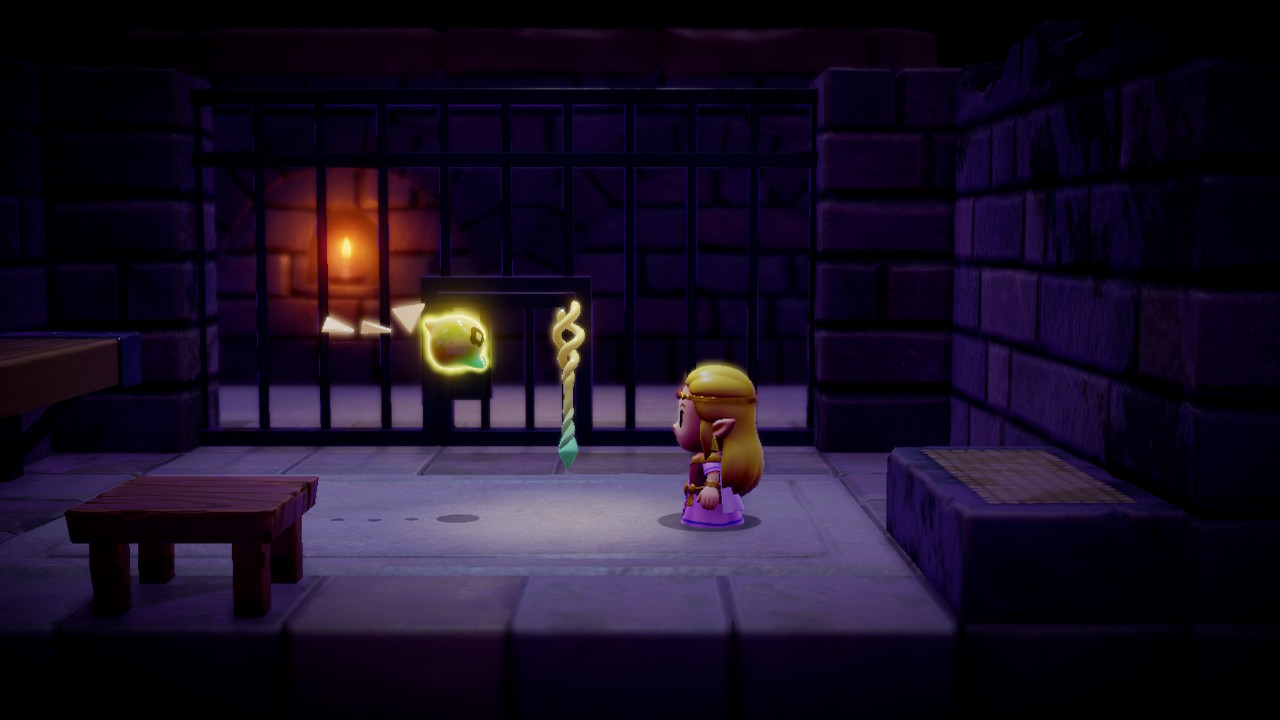
From the story perspective, everything is as usual; Hyrule, Zelda, and Link form the main body of the story, but this time, there is one important difference: unlike all previous titles in The Legend of Zelda series, where Link was the hero, in this game, Link is cursed, and now Zelda must save him and Hyrule, as the game’s protagonist.
The storytelling elements, similar to previous titles in the franchise, are summarized in the dialogues and environment design. As I always say, a Zelda game aims more to entertain you with creative gameplay than to tell a story. However, the notable point about storytelling in The Legend of Zelda: Echoes of Wisdom is that this time, Zelda plays the role of the protagonist instead of Link. One of the significant storytelling challenges for Nintendo has undoubtedly been developing and demonstrating Zelda’s character within the framework of the gameplay. A protagonist who was protected by Link in previous titles now must take on the role of savior and hero. One of the fundamental narrative strengths in the game is that Zelda cannot fight hand-to-hand alone in gameplay, which prevents any dissonance in narrative design.
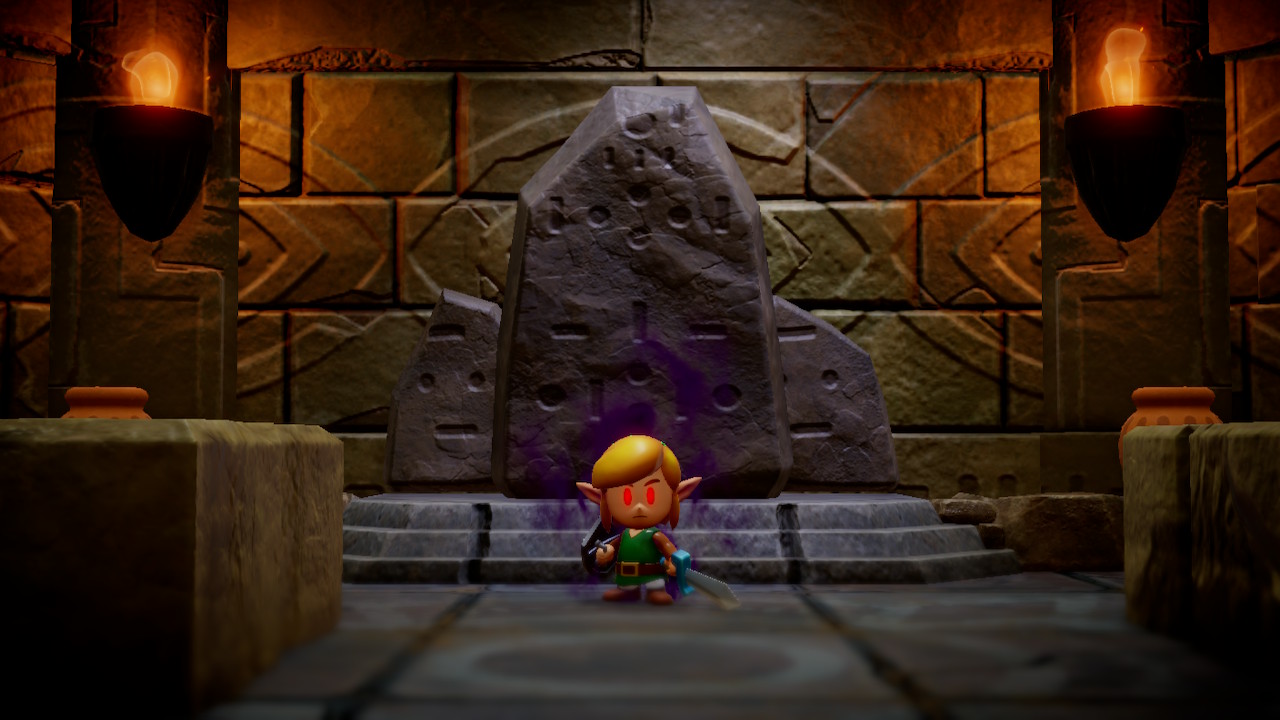
The gameplay of The Legend of Zelda: Echoes of Wisdom is practically the most creative title released in 2024 so far. The core game mechanic is very simple: Zelda, by holding a magical wand called the Tri-Rod, can store a copy of in-game elements in her memory. This copy, an echo of that element, can be a copy of an object like a bed, or a mob that we defeat for the first time. The core gameplay includes platforming, puzzles, and combat.
Zelda can copy and paste objects to create new platforms to overcome obstacles, with a good user interface borrowed entirely from Tears of the Kingdom.
On the other hand, Zelda has two important abilities that she can use in combat; the first is pasting mobs whose echoes she has obtained, and the second is transforming into a character similar to Link, who can fight enemies for a limited time.
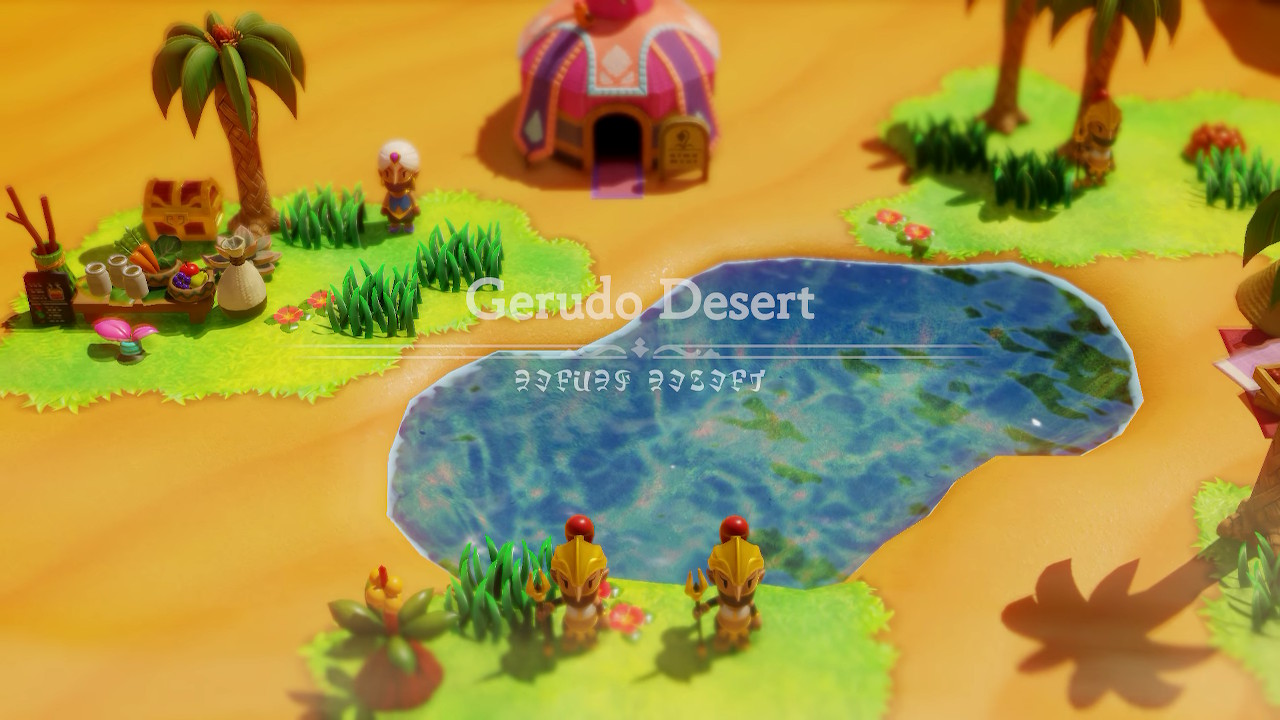
Both abilities get new upgrades as the game progresses, giving Zelda more maneuverability. Regarding puzzles and the game world, you are facing a classic Zelda title, filled with chain puzzles and dungeon crawling. What makes this title unique is the immersive experience which is embedded in the game’s core. The game gives you so much freedom that you can implement even the strangest things that come to your mind in it. For example, one of the unique aspects of the game is its health restoration mechanic that uses beds. If you have an echo or copy of a bed, you can summon it anywhere you want and restore your health by sleeping on it. Interestingly, there are different beds in the game, each with a different health restoration speed. It might seem strange, but during boss fights, I could create conditions to restore my health by sleeping on a bed.
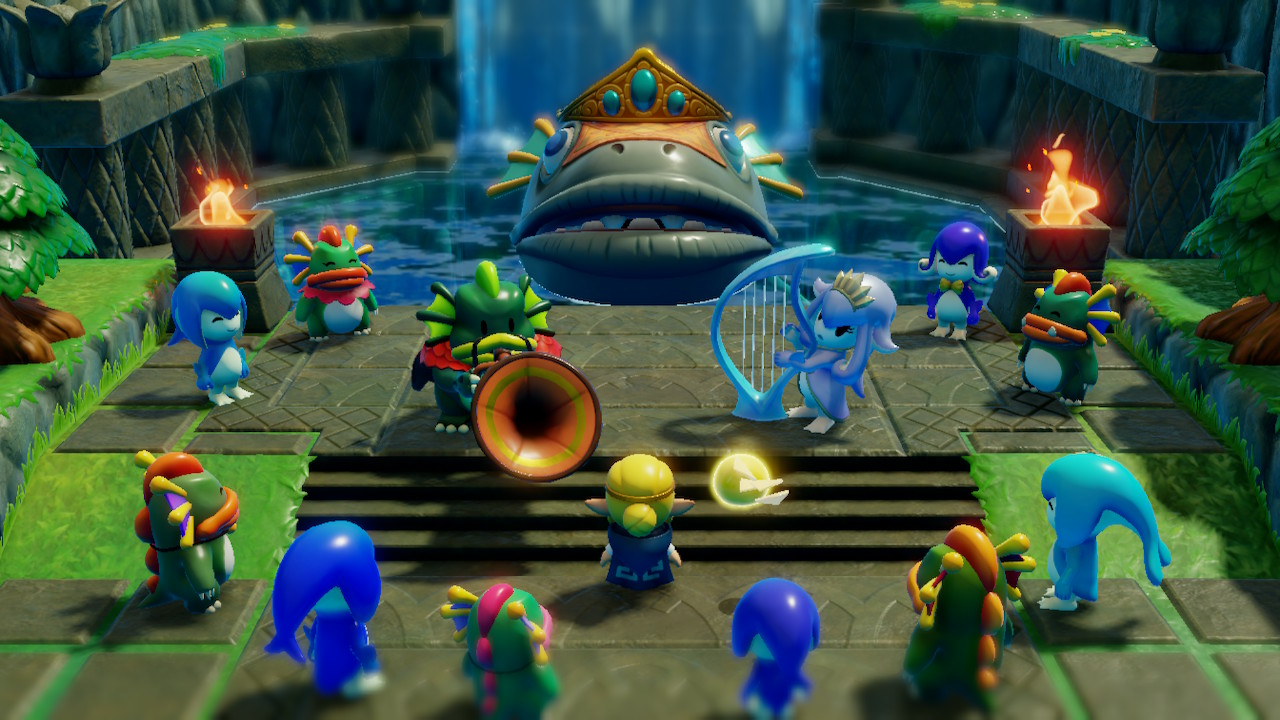
The immersive nature of the gameplay in The Legend of Zelda: Echoes of Wisdom not only increases the game’s replay value but also provides a completely different path for each gamer in the world to progress through the game.
The issue in this section is more about the Nintendo Switch hardware than the game itself. Perhaps it’s better to say that Zelda: Echoes of Wisdom is a title that was intended for the next generation of Nintendo console, but it’s been released earlier. Performance issues in the game due to storing a large amount of echo data is a significant challenge for the Nintendo Switch’s hardware, which eventually doesn’t harm your gameplay experience, but is undeniable.
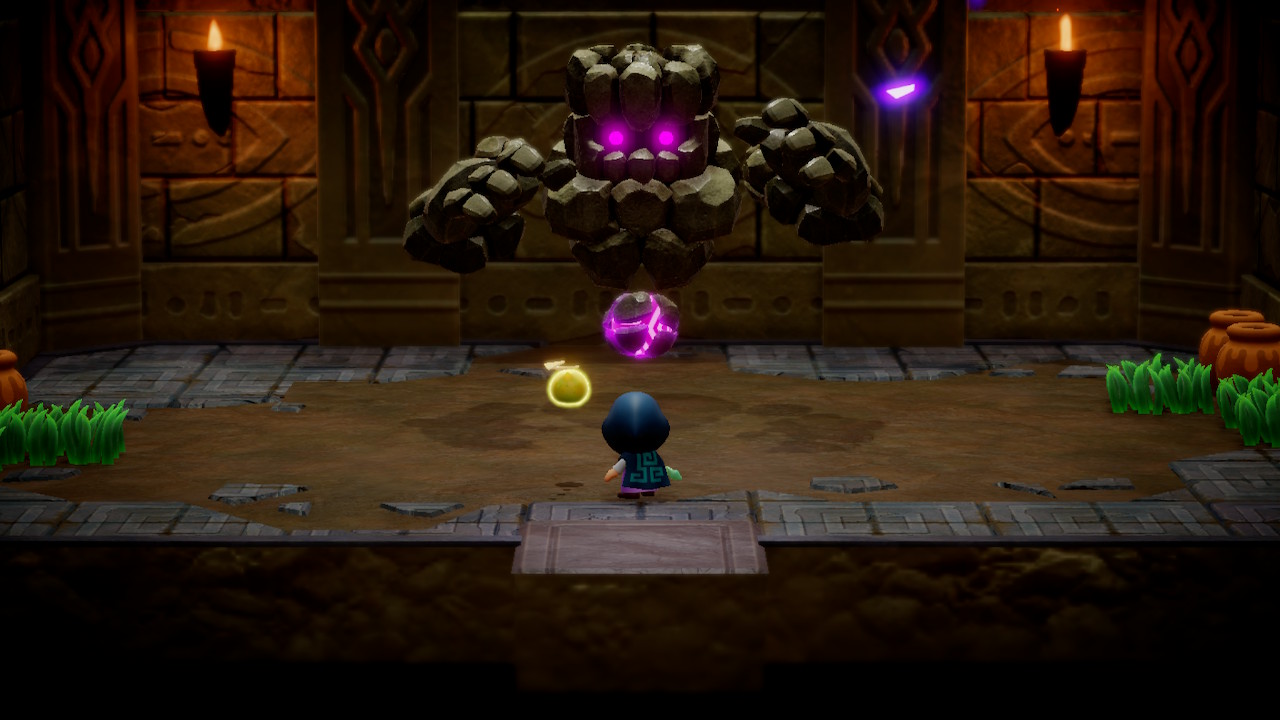
The visuals and sound design of the game match the quality we saw in the 2019 remake, and apart from the previously mentioned issues related to the Nintendo Switch’s hardware, there are no specific flaws.
In conclusion, The Legend of Zelda: Echoes of Wisdom is so vast that each of its creative aspects deserves a separate article, and I couldn’t cover all of them in this review. A title belonging to the future that is available to us now. It’s one of the most entertaining and creative games released in 2024.

The Legend of Zelda: Echoes of Wisdom Review
In conclusion, The Legend of Zelda: Echoes of Wisdom is so vast that each of its creative aspects deserves a separate article, and I couldn’t cover all of them in this review. A title belonging to the future that is available to us now. It’s one of the most entertaining and creative games released in 2024.